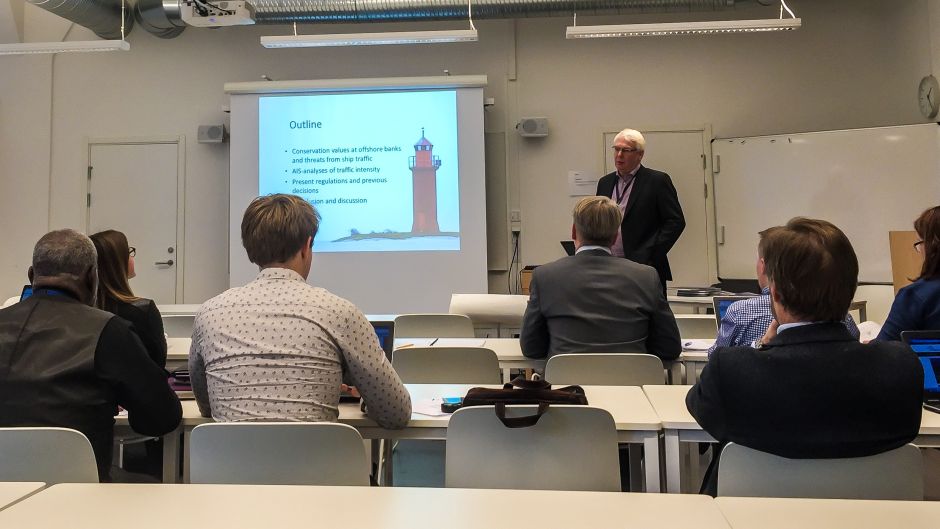Routeing – the way towards energy efficient and environmental friendly shipping?

By improving routeing at sea there are several environmental benefits to be gained. That was the message from several researchers at a seminar about routeing organized by the World Maritime University and the Swedish Marine and Water Management.
“How can routeing improve the environment, why do we need improved routeing and how do we achieve it?” were some of the questions raised by the researchers and officials. Ship routeing is important for making sure that ships do not crash and creates predictable pathways.
- The problem with ocean governance is that the eco-system has no defined boundaries, the ocean does not structure itself on straight lines. For ship routeing also UN conventions about climate change and biodiversity need to be considered, Professor Larry Hildebrand, World Maritime University, said.
Linus Hammar, Analyst at the Swedish Agency for Marine and Water Management showed that the most important thing for reducing pollution around coastal areas in California is regulations.
- The state tried to reduce ship collisions and emissions by asking captains to voluntary slow down in a certain area. However, this did not work. They then tried with creating incentives like tax reduction for ships travelling a slow speed. However, this did not entirely work either. It decreased emissions to some extent but was very costly. When creating a regional regulation, which prohibited ships to run on distilled oil, emissions finally were reduced, Linus Hammar said.
The California case also gave lessons for how to successfully apply a regulation to the IMO.
- The problem must be real. This might seem obvious, but for some it is not. It is also important that all national bodies come to an agreement, that the solution is effective and the there are collaboration between countries, Linus Hammar said.

Ulf Siwe from the Swedish Maritime Administration and project manager for the project Mona-Lisa spoke about Sea-Traffic Management (how you can benefit through guidance and monitoring of sea vessels).
- It is all about sharing. Real-time information has not been containerized and standardized – but it has the potential to become that.
Ulf Siwe meant that with sea-traffic management, improved safety such as increased operational awareness on bridges, deviations warning services and intended rout on exchanged can reduce the environmental impact as well as leading to fewer accidents.
- You can create seasonal “no-go” areas and reduce emissions. With route optimization services you also increase efficiency and enable just-in-time port arrivals and shorter turn-around times, Ulf Siwe said.
Text: Carolina Kihlström
-
 Ny studie: Eldrivna pendelbåtar kan effektivisera Stockholms kollektivtrafik
Ny studie: Eldrivna pendelbåtar kan effektivisera Stockholms kollektivtrafik -
 Sjöfartens utsläpp ökar
Sjöfartens utsläpp ökar -
 Sociala relationer påverkar val av bränsle
Sociala relationer påverkar val av bränsle -
 Sjöfartens omställning kräver ”mjukare” påtryckningar
Sjöfartens omställning kräver ”mjukare” påtryckningar -
 Hon hade avtalad tid med Kapten ynkrygg
Hon hade avtalad tid med Kapten ynkrygg -
 Lighthouse omvärldsanalys 2025 – osäkerhet och tullar präglar sjöfarten
Lighthouse omvärldsanalys 2025 – osäkerhet och tullar präglar sjöfarten -
 Se seminariet Shipping in the Marine Environment
Se seminariet Shipping in the Marine Environment -
 Vad betyder egentligen de 90 procenten?
Vad betyder egentligen de 90 procenten? -
 Hålla där...
Hålla där... -
 Ny rapport: Klimatförändringarna ett hot mot de flesta större hamnar i världen
Ny rapport: Klimatförändringarna ett hot mot de flesta större hamnar i världen

